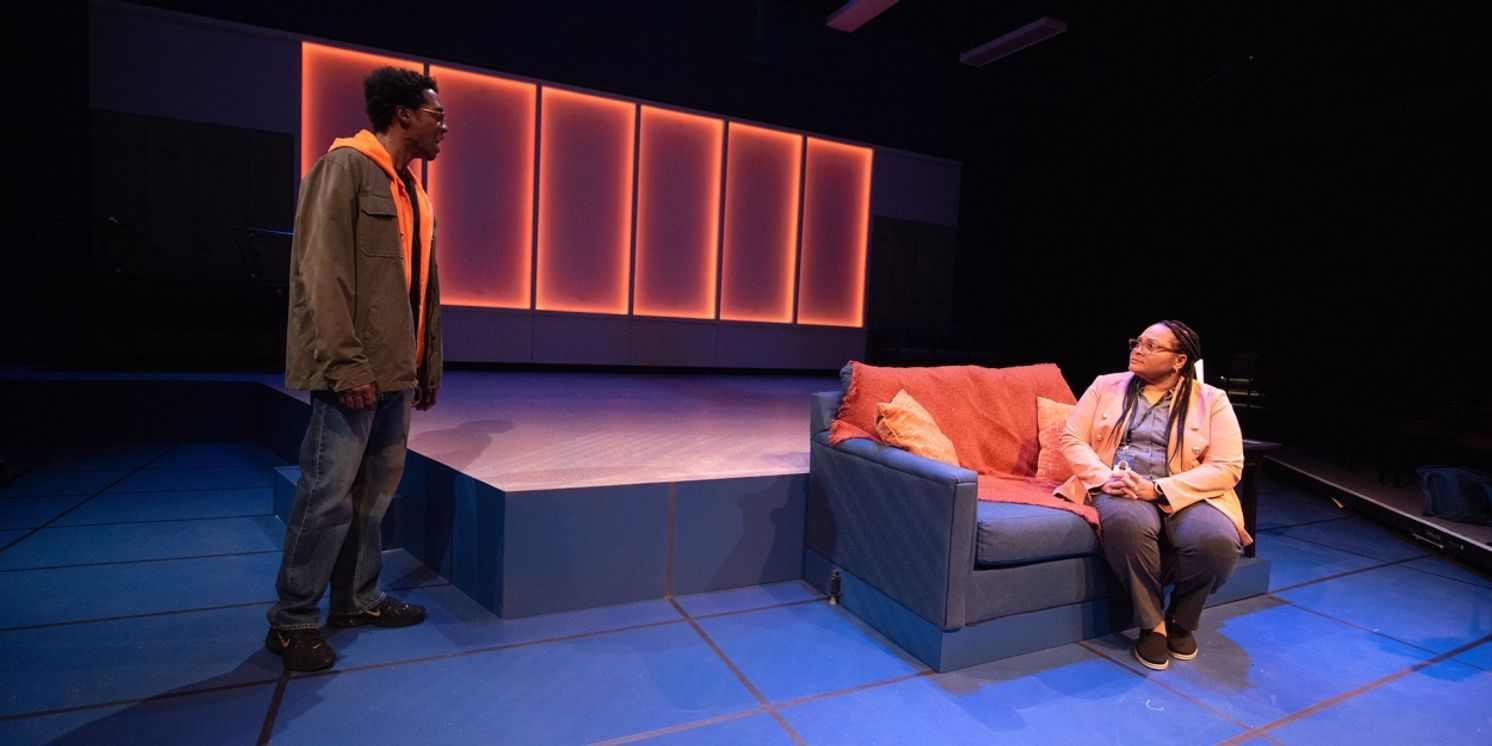Review: The Passion of PIPELINE at Omaha Community Playhouse
Now on stage through November 5th.

PIPELINE, a one act drama written by Tony Award nominated book writer Dominique Morisseau opened at the Omaha Community Playhouse on October 6 under the direction of Breanna Carodine. I finally saw it last night and was impressed by the passionate six member cast. I didn’t, however, feel the story effectively adhered to the presupposition that school policies drive students, especially black students, into a pipeline to the criminal justice system.
The story is of Nya (Deborah Dancer), a strong single mother who is also an educator. She is dealing with her teenaged son, Omari (Wayne Hudson II), who has gotten into trouble by assaulting his teacher. This scene clearly rings of prejudicial treatment when Omari’s teacher repeatedly targets him for his response to the Richard Wright novel, “Native Son.” In “Native Son,” 20 year old Bigger Thomas is living in poverty with his mother. He reacts to uncomfortable situations with violence and kills a white girl. Omari refuses to answer any of the teacher’s questions about Bigger’s violence because he feels the questions are based on his color and his home life. Additionally, he is already upset by his father Xavier (George Weaver) leaving his family and when pressed, Omari reacts by shoving his teacher. Now Omari is threatened with expulsion from the private school his father has funded. We are on Omari’s side, yet we wonder why this is the third strike against him and what happened the first two times.
A second scene points out faulty school policies when a fight breaks out between two students at the public school where Nya teaches. Her fellow teacher, Laurie (Pamela Chase), breaks up the fight when Dun (LeMarcus Baugh), the school security officer, does not respond quickly enough. She is at fault even though she acted to rescue the student being battered. Laurie is a white teacher who has experienced violence against herself from a student’s family and has lost hope in the school system.
If more of the story had revolved around these two plot points, it would have driven home the suggestion that schools were amiss in keeping students off the path that leads to the criminal justice system. But the story diverts to Omari’s relationship to his feisty girlfriend Jasmine (Leticia Taveras), his rocky relationship with his mother and her inability to just listen to him, and his severed relationship with his father. This almost becomes a character study of Omari rather than a look into why black students are expelled three times more often than white students, or why schools are failing students to the point that they are ending up in the criminal justice system. To me the failing here is more about the family not being there for the student. Omari is bereft when his father is absent and his mother is present but emotionally absent.
Whatever you take away from this production, it is done well. Carodine has deftly directed a cast that pulls out all the stops. Emotions run high, highlighted by flickering fluorescent lights and a series of stark white panels that are used to project images of the Gwendolyn Brooks poem which unfortunately appears fuzzy. The jazz poem “We Real Cool” is a powerful depiction of black youth. PIPELINE adds a suggestion of what a white publishing company might do with the broken graffiti writing, molding it into an approved English grammatical structure and losing the heart of the words. The poem is the soul of this play and is emphasized throughout the production.
Although I find PIPELINE to be inconsistent in supporting its theme, I also find it to be well worth seeing. This is a show which will elicit much contemplation and conversation.
PIPELINE is running now through November 5th. Showtimes are Sunday matinees at 2:00 pm and Thursday through Saturday at 7:30 pm in the Howard Drew Theatre. Tickets are available at www.ticketomaha.com or by calling the OCP box office at 402-553-0800.
Photo credit: Omaha Community Playhouse
Reader Reviews
Videos

